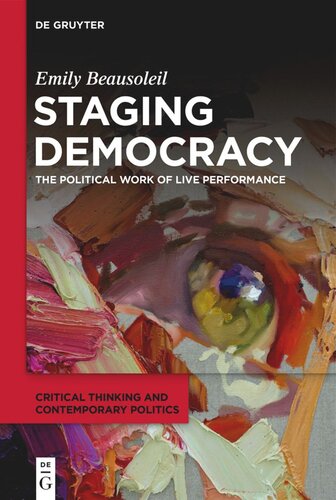

Most ebook files are in PDF format, so you can easily read them using various software such as Foxit Reader or directly on the Google Chrome browser.
Some ebook files are released by publishers in other formats such as .awz, .mobi, .epub, .fb2, etc. You may need to install specific software to read these formats on mobile/PC, such as Calibre.
Please read the tutorial at this link: https://ebookbell.com/faq
We offer FREE conversion to the popular formats you request; however, this may take some time. Therefore, right after payment, please email us, and we will try to provide the service as quickly as possible.
For some exceptional file formats or broken links (if any), please refrain from opening any disputes. Instead, email us first, and we will try to assist within a maximum of 6 hours.
EbookBell Team

0.0
0 reviewsStaging Democracy responds to compelling calls in democratic theory for communication and coalition across social difference by asking how we realize these ideals in concrete terms. It shifts the focus from if and why marginalized difference should find entry into politics, to the practical question of how this is to be done. What explains those rare moments when marginalized voices break through in contemporary politics? And how might a closer look at the strategies and resources at play within such moments enhance how we understand and enact civic engagement?
Political theory and practice have traditionally overlooked the performing arts as a site of civic politics, and yet marginalized communities continually turn to them to communicate, challenge, and catalyze change. This book brings vivid moments of creative practice from three continents together with performance studies and political scholarship to argue that artistic performance offers a potent form of democratic voice for claims from the margins. Across political contexts, democratic aims, and artistic genres, Staging Democracy shows how the very qualities that lead some to think of the arts as unclear, irrational, and irresponsible – and thus politically suspect – shape artistic performance’s distinct capacity to enact democratic engagement in conditions of deep difference and inequality.
• First theoretical account of artistic performance as a site of pluralist democratic politics
• Reveals and analyzes effective and as-yet largely overlooked forms of democratic engagement
• Based on original field work on three continents